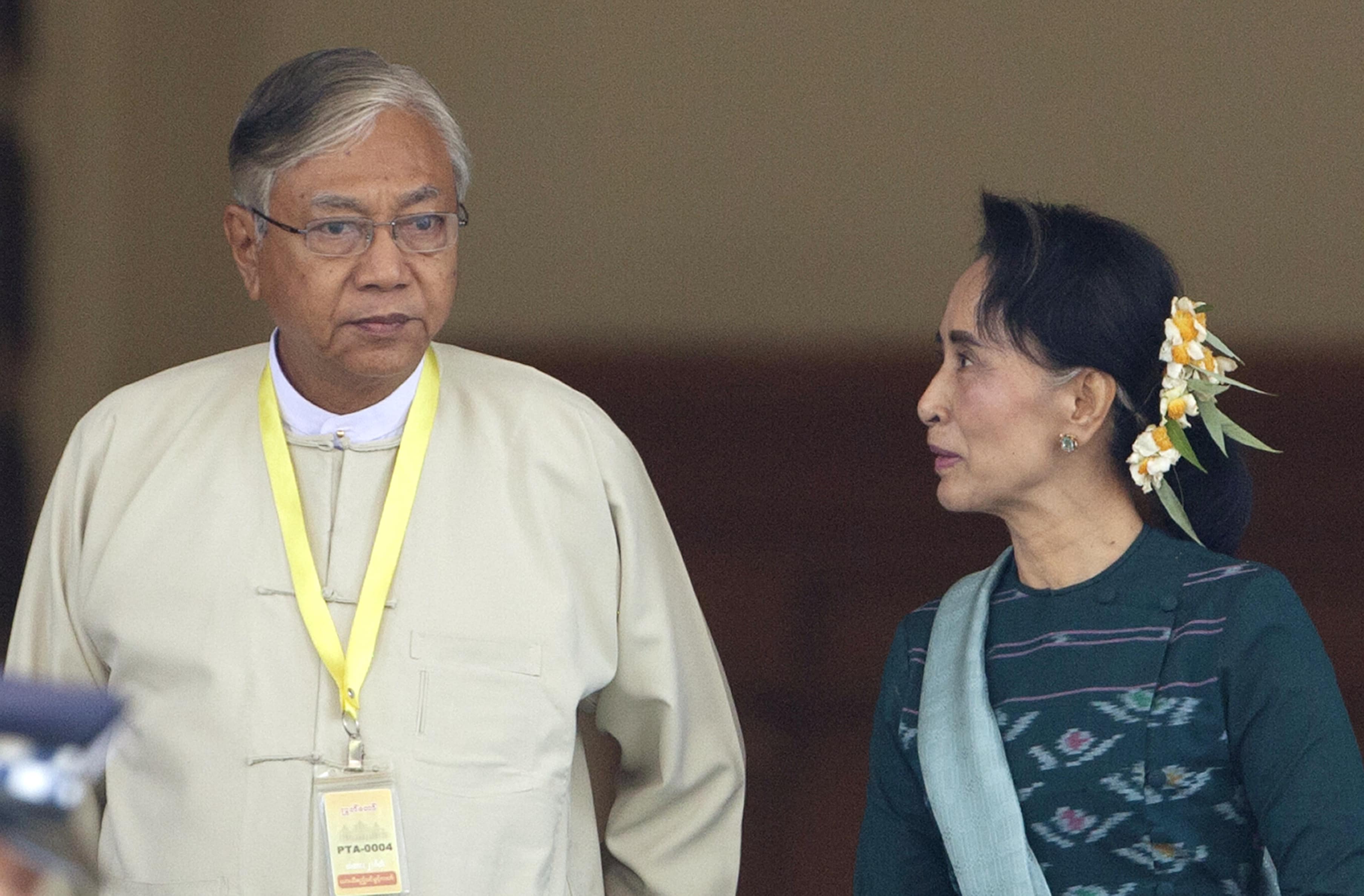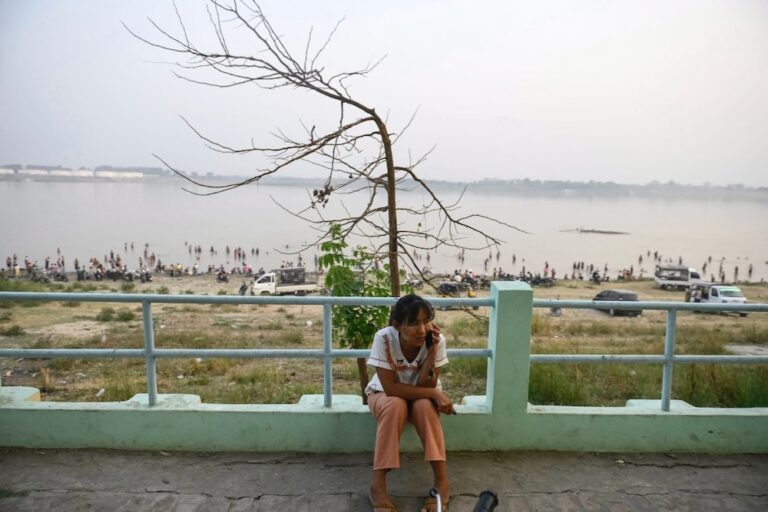Mizzima News editor-in-chief Soe Myint discussed challenges facing the Burmese media as the country transitions to democracy and his hopes for the future during the IPI World Congress.
The following text is taken from a presentation given by Mizzima News Editor-in-Chief Soe Myint at the IPI World Congress 2016, which ran from March 19 to 21 in Doha under the title: Safety and Professionalism.
A Dangerous World
As we are at a time of political transition in our country, it is vital that we can clearly convey to the incoming government what kind of specific support is needed for a professional and ethical media to flourish in our new democracy.
We are all well aware that despite the unprecedented reforms to date, much remains to be done if the people of Myanmar are to witness genuine democracy. And it must be understood that the media plays a crucial role in this process.
Decades of authoritarian rule meant that the culture of democracy was largely extinguished in Myanmar. And there are no quick fixes to be had. Certainly, the NLD faces a daunting task in the amount of work to be done in meeting the expectations of Myanmar’s diverse citizenry. But media can assist in this task. It can do this through the spread of information resulting in a culture of debate.
There are many initiatives that appear to carry broad support in which it is likely the details of policy will be produced and these will really need our full attention. Certainly, an independent judiciary and legislative reform seem to be items that we can all at least generally agree on.
With the events of the past five years and the recent victory of the NLD at the polls, expectations are arguably higher than ever before as to what kind of society Myanmar citizens want to realize. Yet, the truth is that legal reforms have not thus far met these expectations. And it is going to be difficult in the near-term as well – despite best intentions.
Quite frankly, the constitution does not adequately safeguard freedom of expression. There are dozens – if not more – of laws related to media and freedom of expression that arguably need to be addressed in one fashion or another. The legal framework absolutely must protect the independence of the media and prohibit all forms of censorship.
Certainly, to provide just one example, the recently enacted Broadcast Law – despite a lengthy process that did reach out to an array of national and international stakeholders – falls well shy of what we would like to see.
In any case, the review of numerous present laws is required, especially to safeguard freedom of expression. But if I were to pick the one place to begin this initiative, it would be with addressing the urgent need to adopt a Right to Information law. I hope that this is something to which the NLD-led government is able to give top priority.
Moreover, mention has previously been made – along with offers of support – for the potential of legislative reform to assist in spanning the gaps of mistrust that have existed between government and media for so long. And in this respect, I think we are more often than not speaking of the military, whether in government or not. Whatever can be done to try and eat away at this mistrust – and this is a major problem in our country today – deserves our full support.
Now I want to briefly turn our attention to incorporating the ethnic populations of Myanmar into our democratic transition. Unfortunately, of the nearly two-thirds of our population that is defined as rural, many live in remote areas that make it difficult for these populations to be a part of our public debate. And many of these populations, in turn, comprise ethnic groups.
In short, without developing rural and ethnic areas, Myanmar will not have a truly democratic system. One means of supporting this inclusiveness is to foster ethnic language media outlets. With a large and diverse population comes the inherent need for a diverse selection of media options.
However, how to ensure that these groups are able to grow and survive is a major problem. At Mizzima, we are proud to maintain working relationships with several ethnic media outlets. As a part of this relationship, we have provided – and continue to provide – training opportunities for staff of ethnic media.
But the NLD-led government is going to have to seriously explore how best to support these groups so that we don’t lose the voices of the already marginalized. In an already unequal playing field regarding the media sector, many ethnic media houses operate at an even greater disadvantage.
It is important that we don’t abandon the needs of ethnic media. As the Ministry of Information has come to understand, some financial support from the central state seems inevitable at this time if ethnic media are to be given a chance to survive. Going forward, whether this support comes via the MOI or another arm of government, the issue is to make sure that ethnic media houses are assured of this support and know they will not and cannot be abandoned.
I believe we can also broadly agree on the need to further professionalize Myanmar’s journalistic community as well as striving for gender equality and meeting the needs and rights of women.
Unfortunately, the professional qualities of media houses have too often struggled to keep pace with the expanding media sector. At Mizzima, we regularly team up with local and international actors in the training of journalists. One area in which we have regularly worked over the course of recent years concerns training on Conflict Sensitive Journalism and Conflict Reporting. We believe the incoming government – and associated arms – should make every effort to make itself available to the media community so that the people of Myanmar are able to gain a more rounded view of society and conflict, and be able to form more educated opinions.
With respect to the subject of gender, media occupies a position in society that allows us to not only address the matter within our own media houses but also in the public promotion of women as important actors and contributors in society. This is true, to give one example when we look at the ongoing peace process.
Surely the peace process will be one focus of the incoming government, and one method that we, as media, can employ to give the government’s pursuit of peace the greatest chance of success is to fully incorporate women in the process. And in conducting our work, it is important that government takes the necessary steps to ensure the safety and security of all journalists. We witnessed over the previous five years multiple incidents in which this was patently not the case, and accordingly urge the new government to set clearly defined rules for the provision of the safety and security of journalists, regardless of gender.
Lastly, turning to a subject that has spawned a somewhat more diverse set of opinions, what to do with state media? We have received very clear notice of the intentions of the NLD in that they currently support the privatization of state media. It is a view supported by some media houses as well as others.
However, we have also heard some competing views, especially when it comes to the question of Myanma Radio and Television. My personal opinion on the matter is that we should privatize state-owned newspapers – namely Global New Light of Myanmar, Myanma Alin and the Mirror – but should continue with efforts to transform MRTV into a Public Service Broadcaster.
It has been brought to our attention that many countries – such as Britain and India – are home to highly successful hybrid models for national broadcasting. With hard work and dedication, I believe we can experience a similar success for national broadcasting in Myanmar.
But whatever transpires, what I deeply hope is not the end case is that we rush forward with the dismantling of all forms of state media simply because of its links with a previous era of governance in our country. We must appreciate that we have moved on and, accordingly, must consider the possible benefits of some sort of transformation of state media in this new Myanmar.



